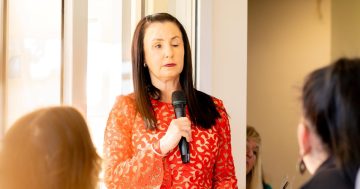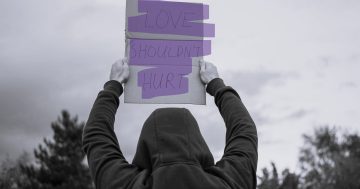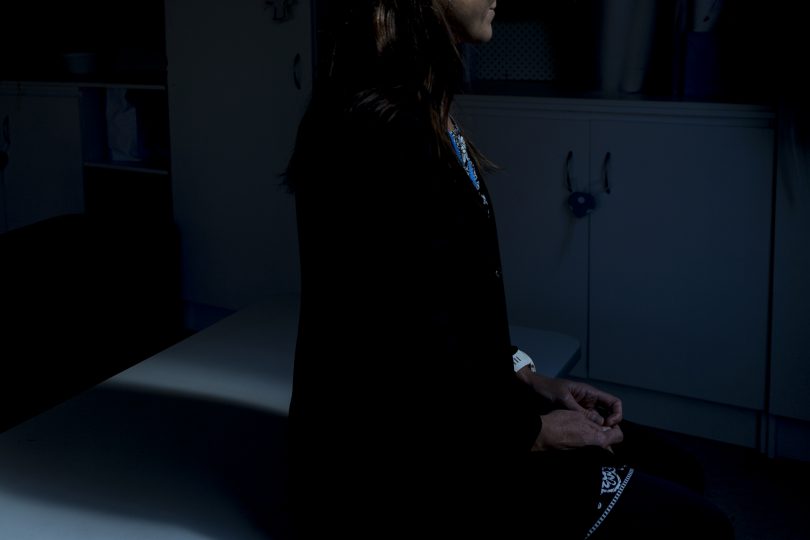
SEWACS Eurobodalla Domestic and Family Violence Service Manager. Photo: Elise Searson
“The hardest part about my job is seeing women go back after leaving,” a local domestic violence manager explains with tears in her eyes.
“Our doors are open with no judgment whenever we’re needed but it’s just so hard because it’s very rare that we see the cycle of violence break.”
When we both speak about that cycle, the conversation very quickly moves to education for young people. While the legal definition of domestic violence has changed, society is still catching up.
“Just because someone isn’t being hit it doesn’t mean they’re not being abused in other ways,” the SEWACS manager explains.
SEWACS is South East Women and Children’s Services, which runs programs in the Bega Valley and Eurobodalla for women, children and young people experiencing domestic violence. The manager I am speaking to has asked to remain anonymous.
“I’ve had certain conversations with men around what they’ve done, they might be threatening to get angry [and say things like] – you need to stop doing this cause I’m going to get angry.
“The anger itself becomes the threat,” she says.
“Or in some cases a father using a threat of self-harm to ‘teach his children a lesson’. These scenarios are just so normal in some families they don’t even know how to recognise it as abusive behaviour.”
The NSW Department of Family and Community Services takes the SEWACS manager’s point further, listing a full range of behaviours and actions considered as domestic violence under the law.
The abuse can include:
- Verbal abuse
- Psychological abuse
- Emotional abuse
- Financial abuse
- Physical abuse
- Sexual abuse
- Harassment and stalking
- Spiritual or religious abuse
- Reproductive abuse
- Image-based abuse
Check the department’s website for more depth, but talking to the SEWACS manager generally speaking any abuse falls broadly under the umbrella of power and control. Examples beyond the physicality many think of first include a partner using jealousy to justify actions, controlling finances or constantly putting the other down.
Education from a young age seems key in helping people understand the impact of their words and actions, “if we had a solid and regular program in schools then over time we would create long-lasting change,” the SEWACS manager says.

Sam is a Love Bites facilitator. Photo: Elise Searson
Year 10 students at Batemans Bay High School voluntarily participated in a domestic violence education program called Loves Bites. It runs annually in various schools in the Eurobodalla and has done for a number of years.
It’s perhaps a step towards what the SEWACS manager points to.
Sam, whose last name is withheld due to privacy reasons, has high hopes for a change in perception of domestic violence. She works with offenders and also believes the re-learning of norms needs to start young.
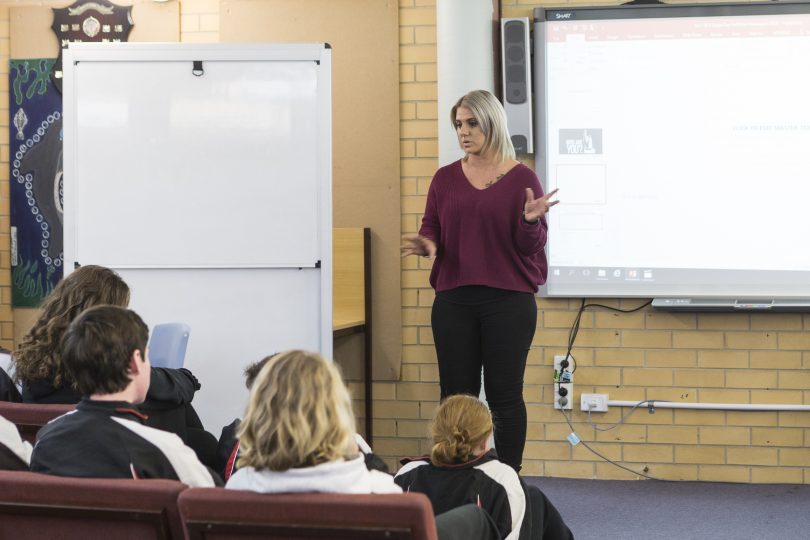
Photo: Elise Searson
Sam who coordinates the Love Bites program on behalf of the Women’s Domestic Violence Court Advocacy Service, says “some students have really strong beliefs they’ve grown up with that have never been challenged so it’s good to give them a safe place to have a conversation about that.”
“To change violence against women we have to change the culture, and the way society thinks.”
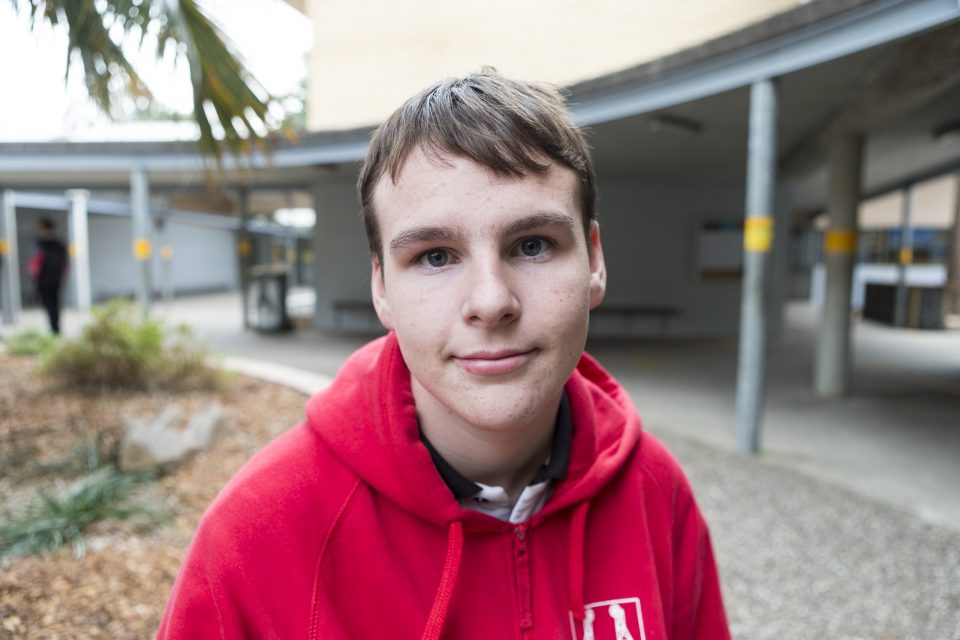
Zach Thorp-Harding. Photo: Elise Searson
Comparing last year’s Love Bites program to this year’s, one of the participating students, Zach welcomes his growing understanding of the issue.
“It happens more than we think, we’re all learning something from this course,” he says.
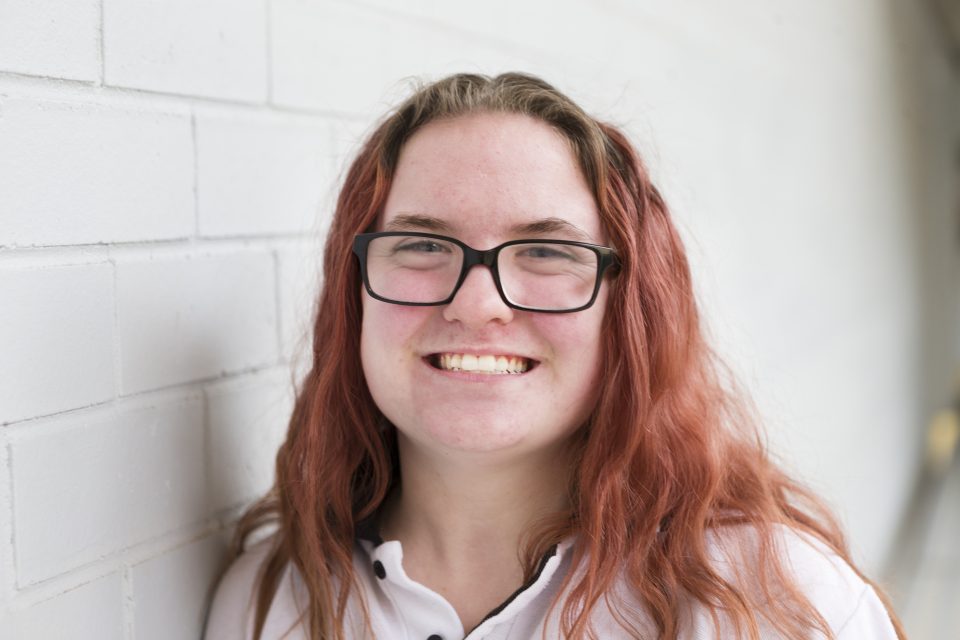
Lillian Griffin. Photo: Elise Searson
For teens, also changing the language around sex is part of the program and has helped students feel comfortable to engage in the conversation.
“The best part about today was the ‘tea video’ – if someone doesn’t want tea don’t shove it down their throat,” another student Lillian says.
The ‘Tea Consent’ video created by Rachel Brian has had close to five million views, Brian is also publishing a book about consent for schools in the UK and aims to empower young people to feel in control over their bodies.
Sadly, Lillian isn’t convinced Love Bites will change the minds of people who bully and harass her at school.
“It makes me feel sad that nothing is changing because I’m one of those people who get bullied all the time,” Lillian says.
“It’s tough coming to school, I have to make myself most days but I get to go to TAFE for Animal Studies on Friday’s, I want to work at Mogo Zoo.”
As the SEWACS manager says, education in schools is key to turning violent attitudes and behaviour around, and Love Bites is working hard to do just that, however, now that you have made it to the end of these words you can start to be part of the change too.
Wouldn’t it be nice to prove Lillian wrong and have her feel a change within her community?
For advice and support – 1800Respect, Kids Helpline, SEWACS. If you are in immediate danger call police on Triple Zero.







